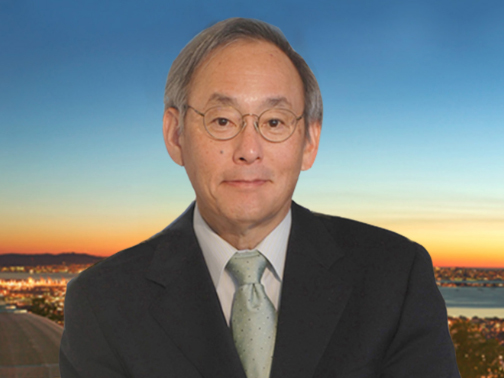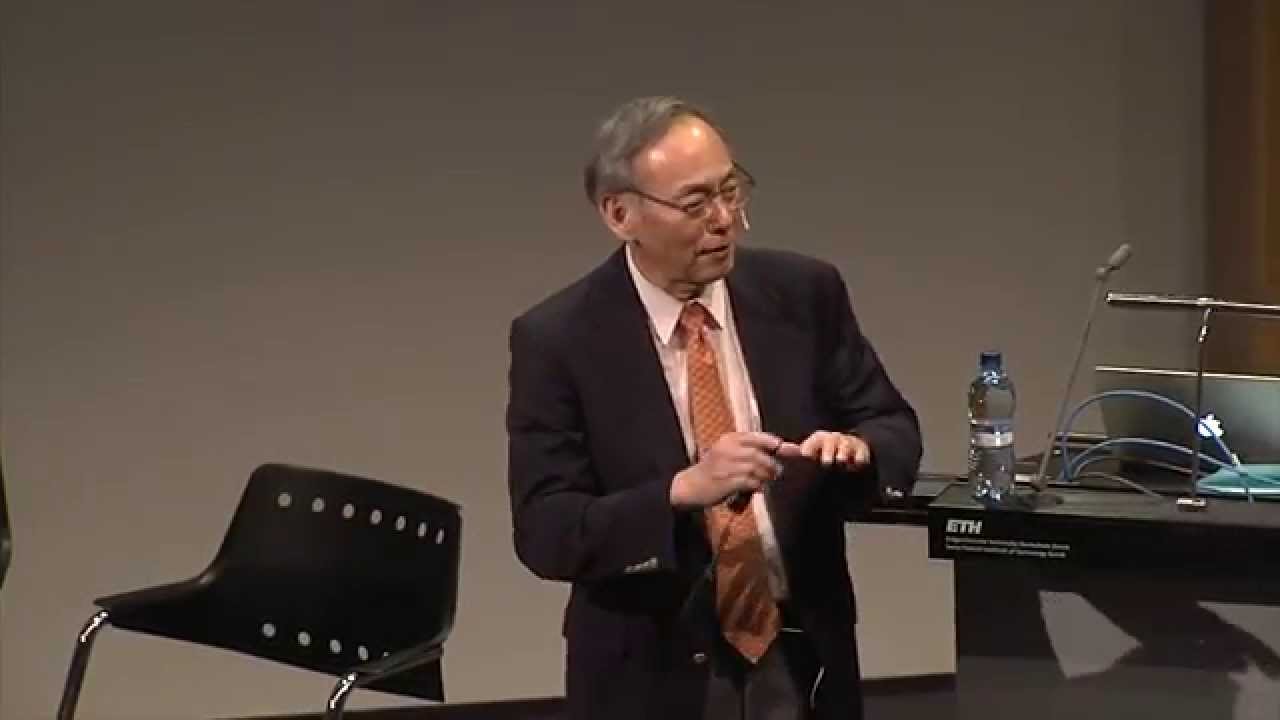Vision for a sustainable energy future
Steven Chu, the American winner of the Nobel Prize in Physics who was US Secretary of Energy between 2009 and 2013, will deliver the Richard R. Ernst lecture this coming Wednesday at ETH Zurich. He will discuss his vision for an economy based on sustainable sources of energy.

The Laboratory of Physical Chemistry will next week present Steven Chu, the 1997 Nobel Laureate in Physics, with the Richard R. Ernst Medal as part of a lecture. The laboratory awards the medal, which honours ETH Professor Emeritus and Nobel Laureate Richard Ernst, to distinguished individuals who have made important contributions as bridge-builders between science, society and politics. “Steven Chu is an outstanding example of someone who brought science to society and still does so today,” says ETH Professor Beat Meier, head of the Laboratory of Physical Chemistry.
Steven Chu is a professor at Stanford University and the University of California, Berkeley. In his research activities, he covers a wide range of topics, from physical and quantum-physical basic research via chemistry through to biophysics. Other areas of interest currently include synthetic biology and biotechnology. Together with two colleagues, he received the 1997 Nobel Prize in Physics for the development of a method that uses a laser beam to cool individual atoms and slow their movement so they can be trapped. Optical tweezers, which are used to hold and manipulate microscopic objects such as single molecules, represent a further development of this technique.
‘Glucose Economy’
From 2009 to 2013, Chu also served as the US Secretary of Energy in Barack Obama’s Cabinet and in that role promoted a sustainable energy policy. Using the term ‘Glucose Economy’, he has proposed solutions in which biotechnology could help replace fossil fuels with biofuel in the future. Glucose would supersede oil as the most important source of energy. According to Chu’s idea, tropically grown plants would be used, as cultivation increases their glucose content significantly. The glucose extracted from the plants would be transported by sea around the world and serve as a source of energy, similar to oil transport today.
This year’s recipient of the Richard R. Ernst Medal will discuss this topic during his public lecture entitled ‘Energy, Climate Change and Sustainability’. Richard Ernst will participate in the panel discussion following the lecture.
Richard R. Ernst Lecture 2015
Lecture by Professor Steven Chu: ‘Energy, Climate Change and Sustainability’
Wednesday, 11 March 2015, 4:00 pm, ETH Zurich, Main Building, Rämistrasse 101, Auditorium Maximum. Doors open at 3:30 pm. Admission is free.
A panel discussion will be held after the lecture. In addition to the speaker, Professor Emeritus Richard Ernst, ETH Professors Alexander Wokaun and Nicolas Gruber, Emiliana Fabbri, a scientist at the Paul Scherrer Institute (PSI), and ETH researcher Adam West will also participate.
Further information: www.lpc.ethz.ch/richard-ernst-lecture
The Richard R. Ernst Lecture is held annually in honour of the 1991 Nobel Laureate in Chemistry and is organised by ETH Zurich’s Laboratory of Physical Chemistry. The lecture aims to promote an interchange between research and the public and to raise awareness of future key issues. The Richard R. Ernst Medal is presented to outstanding individuals who have made a valuable contribution to society and science. Previous recipients of the award include: Gottfried Schatz, Kofi Annan, Ernst Ludwig Winnacker, Roger Penrose, Ahmed Zewail and Kâmil Uğurbil.

